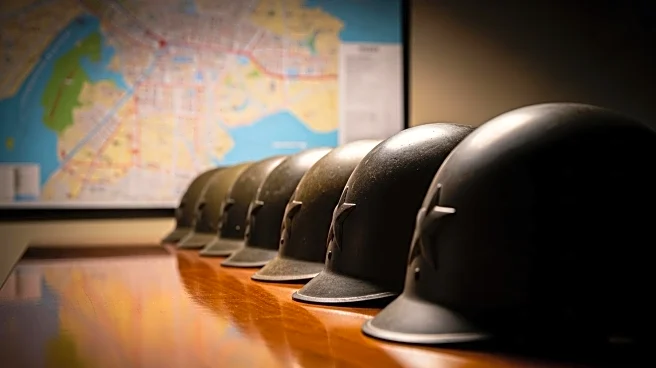What's Happening?
President Donald Trump has authorized the deployment of 300 National Guard troops to Chicago, citing ongoing violent riots and lawlessness. The decision follows an incident where Border Patrol agents shot and injured a woman who allegedly attempted to run them over. The deployment has been met with criticism from Illinois Governor JB Pritzker, who described the move as unnecessary and a manufactured performance. The Department of Homeland Security confirmed the shooting, stating that agents were forced to fire defensively after being boxed in by vehicles. The woman involved was treated and released from the hospital.
Why It's Important?
The deployment of the National Guard in Chicago highlights the ongoing tension between federal and state authorities regarding law enforcement in American cities. This move could set a precedent for federal intervention in local matters, raising concerns about state sovereignty and the militarization of domestic law enforcement. The decision has sparked debate over the balance between maintaining public safety and respecting state governance. Critics argue that such actions may undermine local efforts to manage public safety and could lead to increased tensions between federal and state governments.
What's Next?
The deployment is likely to face legal challenges, similar to those seen in other states where federal intervention has been contested. Governor Pritzker and other state officials may seek legal recourse to block the deployment, citing concerns over state rights and the potential for escalating violence. The situation in Chicago will be closely monitored by both supporters and opponents of the deployment, as it may influence future federal actions in other cities experiencing unrest.









